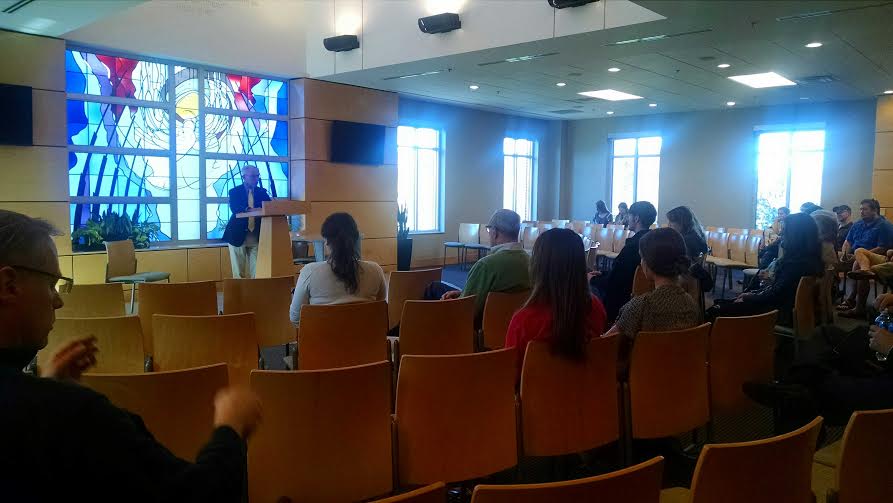Author and journalist Thomas Lippman addressed American interests in the Middle East in Doris Swang Chapel on Lipscomb’s campus Tuesday, April 12.
“Frankly, I enjoy audiences that have done their research and ask questions based in some knowledge much more than those I have to teach Islam-101 to,” Lippman said. “I certainly found the more preferred audience here at Lipscomb.”
Lippman served as the Washington Post’s correspondent in the Middle East for a number of years and has written two books regarding Middle Eastern political climates: Inside the Mirage: America’s Fragile Partnership with Saudi Arabia and Hero of the Crossing: How Anwar Sadat and the 1973 War Changed the World.
In his public affairs briefing, Lippman spoke on the origins of instability in the Middle East, such as historic rivalries and collective grievances.
“I’m sure you’ve all heard the saying, ‘those who forget the past are doomed to repeat it,’” Lippman said during his presentation. “Well, in the Middle East, the opposite is true. Those who don’t forget the past are doomed to repeat it because that’s how deep these cross-generational grievances are.”
Lippman took attendees through a timeline of the year 1979 in the Middle East. The events that took place during that monumental year are large contributors to the current situations we see today in that region, according to Lippman.
Lippman began by addressing the Iranian Revolution of January, 1979 and concluding his calendar rundown with the Soviet invasion of Afghanistan in December of 1979.
The briefing was attended by students, university faculty and community members, and was co-hosted by the Tennessee World Affairs Council.
“We’re so happy that Lipscomb and professors like Dr. Susan Haynes have welcomed us here with events like this public affairs briefing with Thomas Lippman,” said Patrick Ryan, president of the Tennessee World Affairs Council. “We’re so pleased with such a big turnout from the community here and we look forward to continuing this strong relationship with Lipscomb in the future.”
Even students without a background in political science found the event intriguing, according to psychology and philosophy major Alex Price.
“Not having much foreknowledge about Middle Eastern affairs inhibited some of my understanding of the discussion, but the speaker clarified a lot of issues for me tonight,” Price said. “I’m much more interested in this topic now than I was before.”

